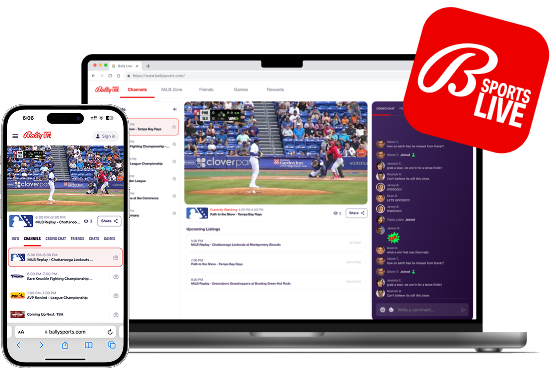
Stadium Has Moved to Bally Sports Live!
As of April 15, 2025, Stadium is only available to watch on your browser on the Bally Sports Live site ballysports.com. Don't worry - your Rewards, Bally Coins and account settings have moved with you. Just log in to Bally Sports Live using your Stadium credentials to pick up right where you left off